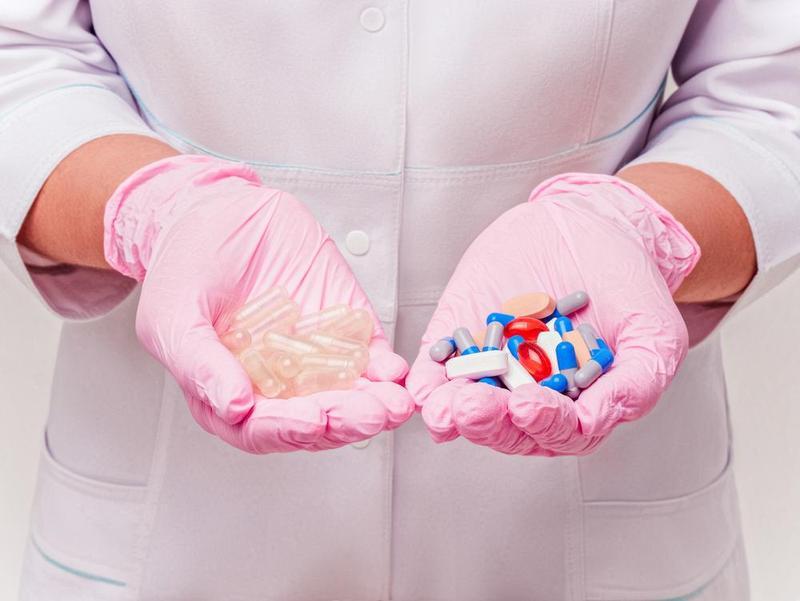Placebo effect: the amazing power of consciousness
Placebo effect: the amazing power of consciousness
Our mind is a strong healing instrument when given the chance. The thought that our brain can persuade our body a fake treatment is the real thing — the so-called placebo effect — and thus promote healing has been around for centuries. Today research has revealed that under the correct circumstances, a placebo can be just as good as traditional treatments.
“The placebo effect is more than positive thinking — believing a treatment or procedure will work. It’s about creating a stronger connection between the brain and body and how they work together,” explains Professor Ted Kaptchuk of Harvard-affiliated Beth Israel Deaconess Medical Center, whose studies concentrate on the placebo effect.
Placebos won’t decrease your cholesterol or shrink a tumor. Instead, placebos work on symptoms modulated by the brain, like how we perceive pain. “Placebos may make you feel better, but they will not cure you,” states Kaptchuk. “They have been shown to be most effective for conditions like pain management, stress-related insomnia, and cancer treatment side effects like fatigue and nausea.”
Is the placebo effect a failure or success?
For a long period of time, a placebo effect was believed to be a sign of failure. A placebo is used in clinical trials to check the effectiveness of treatments and is most often used in drug research. For example, people in one group receive the tested drug, while the others get a fake drug, or placebo, that they believe is the real thing. This way, the scientists can evaluate if the drug is effective by comparing how both groups react. If they both have the same reaction — improvement or not — the drug is thought not to be effective.
More recently, nonetheless, scientists have realised that reacting to a placebo does not prove that a particular treatment is not effective, but rather that another, non-pharmacological instrument may come into play.
How placebos work is still not completely known, but it involves a complex neurobiological reaction that includes everything from boosts in feel-good neurotransmitters, like endorphins and dopamine, to larger activity in particular brain areas connected to moods, emotional reactions, and self-awareness. All of it can have therapeutic benefit. “The placebo effect is a way for your brain to tell the body what it needs to feel better,” explains Kaptchuk.
But placebos are not all about releasing brainpower. You also need the procedure of treatment. “When you look at these studies that compare drugs with placebos, there is the entire environmental and ritual factor at work,” says Kaptchuk. “You have to go to a clinic at certain times and be examined by medical professionals in white coats. You receive all kinds of exotic pills and undergo strange procedures. All this can have a profound impact on how the body perceives symptoms because you feel you are getting attention and care.”
Giving yourself a placebo
Placebos are often effective because people are not aware they are receiving one. But what happens if you know you are receiving a placebo?
A 2014 research conducted by Kaptchuk and published in Science Translational Medicine studied this by checking how people reacted to migraine pain medication. One group took a migraine drug labeled with the drug’s name, another took a placebo labeled “placebo,” and a third group took nothing. The researchers found that the placebo was 50% as effective as the real drug to lower pain after a migraine attack.
The scientists had an idea that a driving force beyond this reaction was the simple process of taking a pill. “People associate the ritual of taking medicine as a positive healing effect,” says Kaptchuk. “Even if they know it’s not medicine, the action itself can stimulate the brain into thinking the body is being healed.”
How can you give yourself a placebo besides taking a fake pill? Practicing self-help practices is one way. “Engaging in the ritual of healthy living — eating right, exercising, yoga, quality social time, meditating — probably provides some of the key ingredients of a placebo effect,” says Kaptchuk.
While these activities are good interventions in their own right, the level of attention you give can increase their benefits. “The attention and emotional support you give yourself is often not something you can easily measure, but it can help you feel more comfortable in the world, and that can go a long way when it comes to healing.”
Be the first to post a message!
